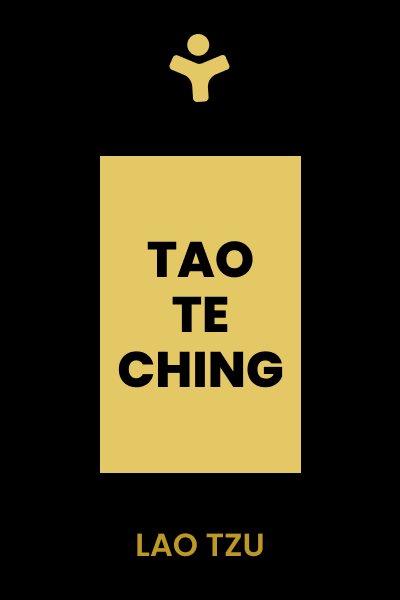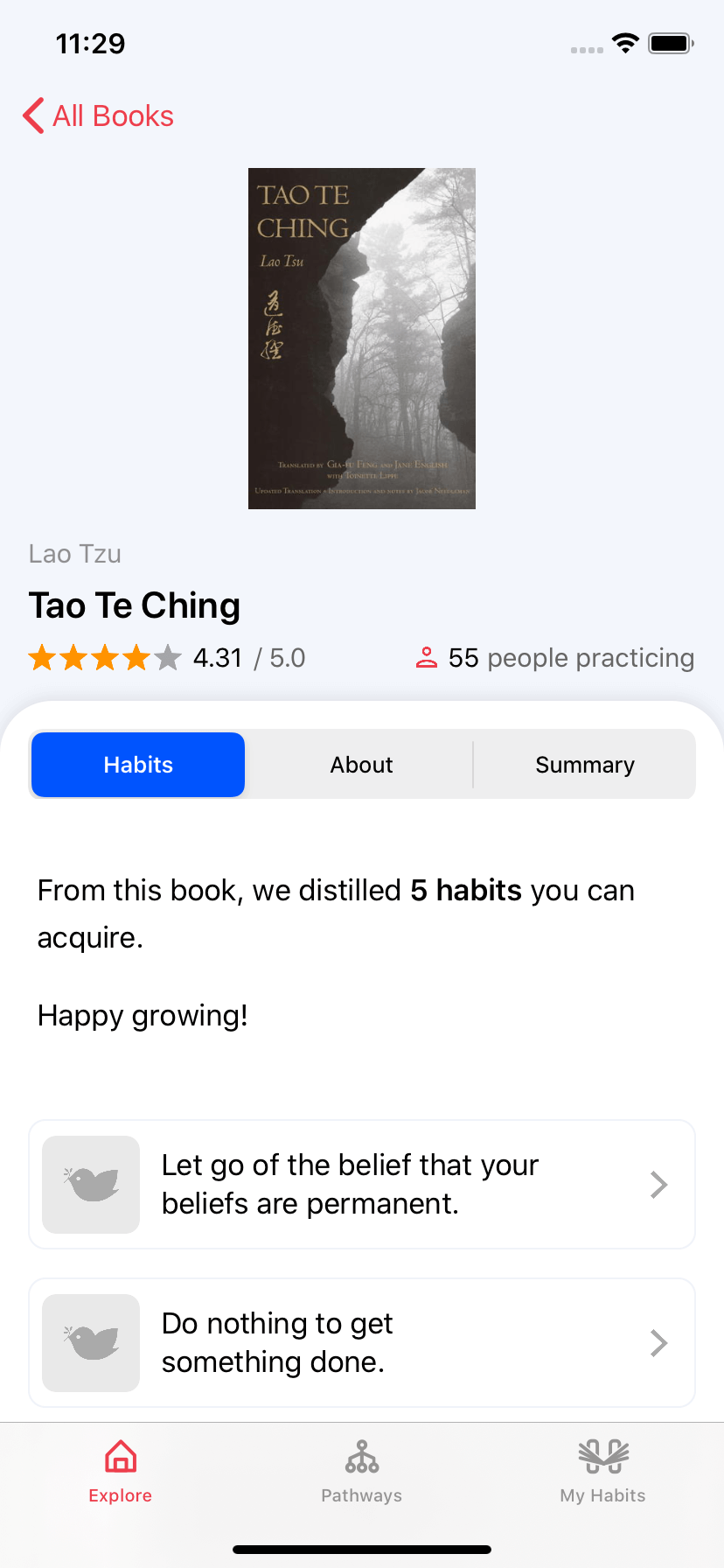
Tao Te Ching
Read in the App
Full actionable summary
Tao Te Ching is an ancient text written by the Chinese philosopher Lao Tzu. Tao Te Ching, also being the main writing of Taoism, consists of great wisdom and knowledge on living life with inner peace and contentment. This book has been translated to English, while still maintaining as much of the original message as possible, by Ursula K. Le Guin and J. P. Seaton. Taoism is not a religion as much as it is a way of life—a way to be free of inner conflict and pain.
What You'll Learn
This summary distills the key insights from Tao Te Ching into actionable steps you can apply immediately. Perfect for busy professionals who want to learn and implement quickly.
Read in the App
Get the full actionable summary with our mobile app
Key Insights & Chapters
Inner Peace
“If you realize that all things change, there is nothing you will try to hold on to.”
A core principle of Taoism is “Wu Wei”, or “action through non-action”. This might sound like just letting things happen on their own, and not bothering ourselves or others about it. However, that doesn’t paint the full picture.
There are things we can control and things we can not. We can not control the things around us. We can not control the world or others. Everything is constantly changing and we have no influence over these events. Everything fades away by time. Knowing this, we can attain inner peace by accepting the limitations of our control, the impermanence of nature, and by focusing on only one thing at a time: the present moment.
For the world to be balanced, there must be yin and yang. For us to maintain inner peace, we must first understand that our beliefs and personal values cannot possibly explain the true meaning of yin and yang. Letting go of the belief that our “truths” are permanent will enable us to find peace in the world and within ourselves.
Actions to Take
Competitiveness reframed
“The sage stays behind, thus he is ahead./ He is detached, thus at one with all./ Through selfless action, he attains fulfillment.”
When you compete with someone, it is not about winning or losing. When a match is ego-driven or you wish your opponent to stay down, you lose the round, even when you are the one who won.
Mistakes will be made by you and everyone else. But these mistakes are opportunities to grow. The aim of any competition is not to win—it is to thrive, to be more, to gain knowledge and experience. If you can keep this mindset you will not only be more resilient and calm, but you will see the world differently. Instead of wanting to be better than others, you will want to help them to be better at anything. As humans, as the same species, we should help each other, not hurt.
When you let go of your sense of self, you will no longer compare yourself to others. You will then be uncompetitive and simply strive to do your best. More importantly, you will do what is good and right—helping others.
Actions to Take
Love of mistakes
“People usually fail when they are on the verge of success./ So give as much care to the end as to the beginning;/ Then there will be no failure.”
Most of us do not like to fail. We think about it as something bad. But we should remind ourselves, that as we learned earlier if something is true, its opposite also must be true. Failing or making mistakes will probably have some disadvantageous effects on our progress or on our project. But making mistakes also have another effect—a beneficial one. That we can learn something from it. We can enrich our experiences. We can be more professionally, personally, and as human beings.
Every kind of mistake should be treated as an opportunity to increase our self-awareness. Because if we lack it, we would not even be able to perceive our mistakes as something other than “bad.”
Actions to Take
Get Full Access in the App
Download Mentorist to explore detailed action steps, track your progress, and build lasting habits.

Experience the Full Summary
Read comprehensive summaries and track your progress with our mobile app